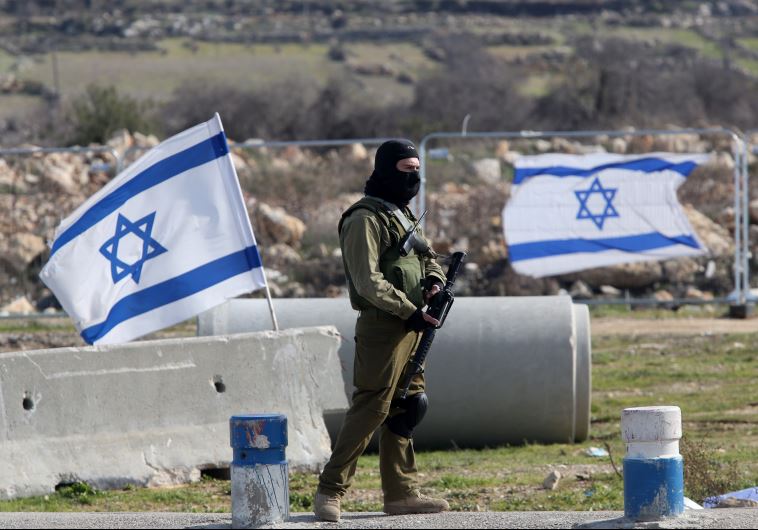Survey: Majority of Israelis believe Breaking the Silence is a political organization
The survey was compiled by the Association of Civil Military studies in Israel polled 500 Hebrew speakers between the ages of 18-65.
 IDF soldier at West Bank checkpoint at Gush Etzion Junction.(photo credit: MARC ISRAEL SELLEM/THE JERUSALEM POST)Updated:
IDF soldier at West Bank checkpoint at Gush Etzion Junction.(photo credit: MARC ISRAEL SELLEM/THE JERUSALEM POST)Updated: